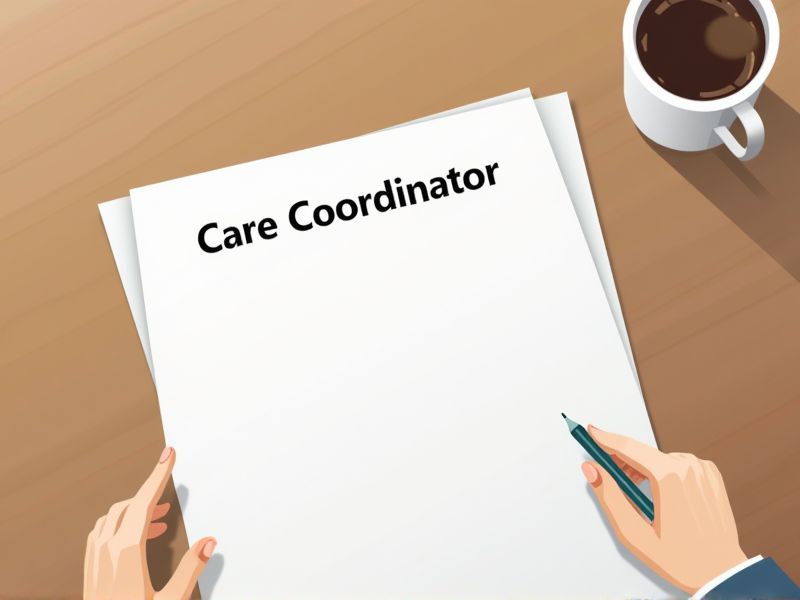
Care Coordinators play a crucial role in ensuring efficient and personalized patient care by navigating complex healthcare systems. Certain certifications are required to equip them with necessary clinical knowledge and administrative skills, enhancing both their credibility and effectiveness. These certifications often address vital aspects such as patient confidentiality, care coordination techniques, and effective communication. Here are some important certifications you may need as a Care Coordinator.
Certified Case Manager (CCM)
A Certified Case Manager brings specialized knowledge and skills that enhance the quality and efficiency of patient care coordination. The certification ensures that coordinators adhere to best practices and stay current with medical and logistical updates, which can improve patient outcomes. Having a CCM on the team signals a commitment to upholding industry standards, which can boost patient and organizational trust. A CCM's expertise in navigating complex healthcare systems can reduce costs and streamline processes for both patients and providers.
Certified Professional in Healthcare Quality (CPHQ)
The Certified Professional in Healthcare Quality (CPHQ) credential equips care coordinators with the expertise to enhance patient care quality through evidence-based practices. With CPHQ certification, care coordinators can effectively analyze data to identify trends and implement improvements. This certification also demonstrates a commitment to maintaining standards and reducing errors in healthcare delivery. Employers often seek CPHQ-certified professionals to ensure a culture of continuous quality improvement and patient safety.
Certified Health Education Specialist (CHES)
The role of a Certified Health Education Specialist (CHES) in care coordination contributes to improved patient outcomes by ensuring accurate health education and promoting patient engagement. Their specialized training in health behavior theories and educational strategies enables them to tailor interventions that effectively address patient needs. CHES professionals enhance interprofessional team communication, leading to more cohesive and comprehensive care plans. Their expertise in evaluating and implementing evidence-based practices supports continuous improvement in care delivery and patient satisfaction.
Certified Professional in Patient Safety (CPPS)
The role of a Care Coordinator involves overseeing patient transitions across different healthcare settings, which makes the expertise in safety practices crucial. Certification as a Certified Professional in Patient Safety (CPPS) enhances the coordinator's ability to identify and mitigate risks, reducing preventable harm to patients. CPPS equips care coordinators with standardized safety strategies, promoting consistent care delivery. Improved patient outcomes directly result from the integration of safety principles learned through CPPS certification.
Certified Clinical Documentation Specialist (CCDS)
The Certified Clinical Documentation Specialist (CCDS) ensures accurate and detailed medical records, which enhance communication among healthcare providers and improve patient outcomes. Accurate documentation directly impacts the quality of patient care and treatment plans, making the role essential for Care Coordinators. The CCDS certification provides expertise in identifying and correcting discrepancies in documentation, aligning records with current standards and regulations. This leads to optimized workflows and enhanced care coordination, promoting both efficiency and compliance in healthcare settings.
Lean Six Sigma Green Belt (Healthcare)
Lean Six Sigma Green Belt provides Care Coordinators with tools to streamline processes, reducing errors and waste in healthcare settings. By adopting its principles, care coordinators can enhance patient experience and optimize resource allocation. Training in Lean Six Sigma equips them with skills to identify inefficiencies, directly impacting patient outcomes and staff satisfaction. Green Belt certification fosters a culture of continuous improvement in healthcare, which is crucial for the evolving demands in patient care.
Care Coordination Certification (CCC)
Care Coordination Certification (CCC) ensures that care coordinators possess a standardized level of knowledge and skills, leading to improved patient outcomes. The certification fosters a stronger understanding of healthcare systems, enabling coordinators to navigate and manage patient care more effectively. By validating expertise, CCC enhances professional credibility, potentially opening doors to career advancement and higher pay. As healthcare systems continue to evolve, having a CCC helps coordinators adapt to changing practices and technologies.
Certified Managed Care Professional (CMCP)
Employing a Certified Managed Care Professional (CMCP) in a Care Coordinator role ensures comprehensive understanding of managed care principles, which directly impacts efficient patient care management. The CMCP credential validates expertise in healthcare regulations and cost containment, leading to better alignment of patient needs with payer policies. This certification enhances the ability to navigate complex insurance and reimbursement systems, facilitating smoother care transitions and optimizing resource utilization. Furthermore, possessing a CMCP credential demonstrates a commitment to professional development, resulting in improved trust and communication with patients and healthcare providers.
Certified Patient Advocate (CPA)
Certified Patient Advocates bring specialized knowledge and skills that enhance a Care Coordinator's ability to navigate the complex healthcare system, ensuring patients receive comprehensive care. They facilitate communication between patients, families, and healthcare providers, reducing misunderstandings and improving patient satisfaction. Their expertise in patient rights and healthcare policies aids in safeguarding patient interests and streamlining processes. They also help in identifying and overcoming barriers to care, which leads to better health outcomes and more efficient use of resources.
Health Coach Certification (HCC)
Health coaches with certification often possess enhanced understanding of holistic health management, improving care coordinators' ability to address diverse patient needs effectively. With HCC, care coordinators can incorporate behavior modification techniques, which can lead to more sustainable patient outcomes. Certification also ensures that care coordinators are up-to-date with the latest health and wellness practices, crucial for providing relevant advice. Enhanced credibility through certification can build patient trust, fostering more cooperative patient-coordinator relationships.
Summary
When you, as a Care Coordinator, obtain certifications, your credibility and competence in the field are likely to increase. This can lead to enhanced trust from both patients and colleagues, potentially improving collaborative efforts and patient outcomes. The advanced skills and knowledge you gain may also result in more efficient care planning and coordination. Consequently, career advancement opportunities like promotions or salary increases could become more accessible to you.
